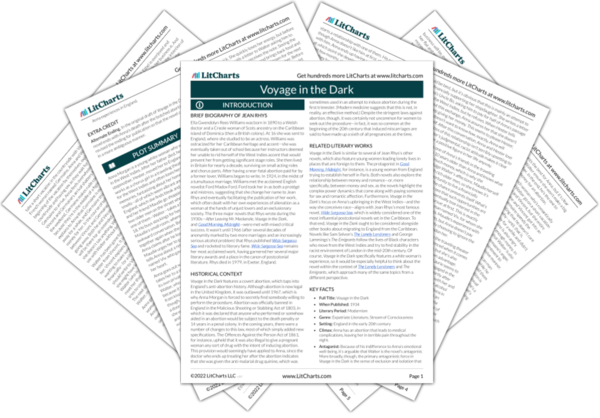Anna has previously said that she wishes she were Black, but now that Hester suggests that she might be, Anna apparently changes her mind: she
doesn’t want to be Black, it seems, indicating that she’s only interested in the vague idea of what she thinks Blackness stands for—namely, a life that is “warm and gay.” Needless to say, Anna’s life is not “warm and gay,” so it’s inconceivable to her that she could be Black. It’s also possible that Anna wanted to be Black while living in the West Indies because she wanted to feel a sense of belonging. Now that she’s in England, though, being Black would further expose her to prejudice and alienation. Because she no longer finds the idea of Blackness convenient and alluring, then, she stops romanticizing it.
